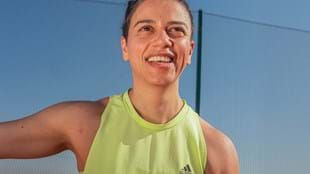Observed by the majority of the 1.8 billion Muslims worldwide, Ramadan is a month of fasting, prayer, and reflection that offers many spiritual rewards – and some physical benefits too.
Each year, Ramadan shifts according to the moon. In 2024 it starts on the evening of Sunday, March 10 and ends on Monday, April 8. During this period, Muslims fast between sunrise and sunset – eating only from iftar (the meal served after sunset) until suhoor (the meal served before dawn).
The concept of fasting has been around for centuries, adopted by many cultures and religions as a spiritual act designed to purify and heal the mind, body and soul. In recent times various fasting diets have become a popular mechanism for weight loss (you can read more about intermittent fasting here).
There are some key differences between fasting during Ramadan and intermittent fasting, however. Ramadan fasting periods are specified by the sun and moon, whereas intermittent fasting periods are usually dictated by ratios (the 16:8 or 5:2 diet). And, importantly, fasting during Ramadan means abstaining from water consumption, whereas intermittent fasting allows you to hydrate as required.
Read on to discover how five top Les Mills trainers successfully balance fitness and fasting and pick up their tips for safe and effective training during the holy month.
Nagham Albeitawi
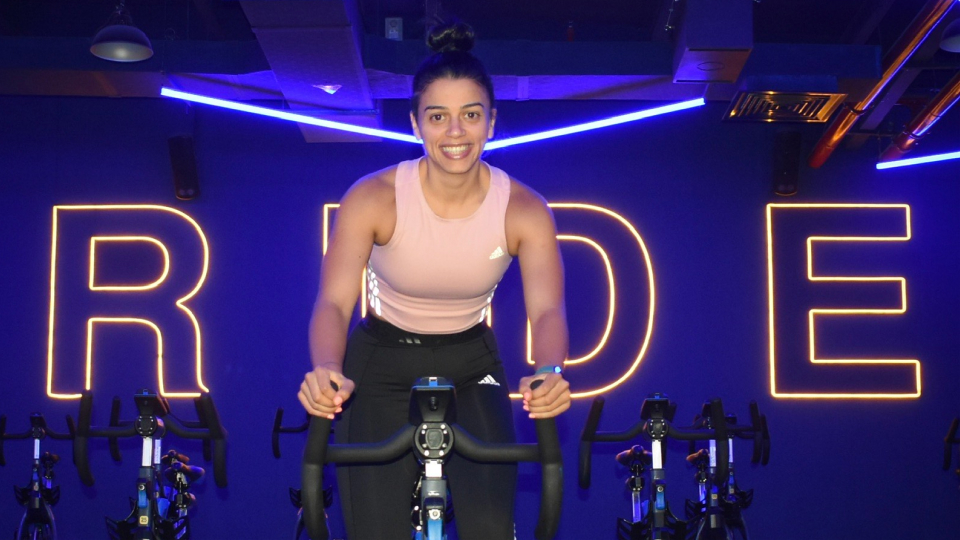
Dubai-based Nagham Albeitawi is a BODYPUMP™, RPM™, LES MILLS SPRINT™ and BODYBALANCE™ Instructor who considers Ramadan the healing month of the year.
How do you use Ramadan to improve your physical and mental health?
“Ramadan gives us time to pull back and reset the mind and body. By fasting, we can help boost our physical health and also our mental health. It improves our self-discipline and control and brings a lot of spiritual awareness to purify the mind and body. It also helps our patience, as we empathize with those who are living in hunger and poverty.”
How do you tailor your training during Ramadan?
“During Ramadan I favor lower-intensity and lower-impact workouts, focusing more on flexibility, mobility, and core training. If I can, I prefer to teach fewer classes, as it's a good time to allow myself to pull back and try to integrate different types of training."
How do you maintain energy?
"Breaking the fast with dates, water and maybe a soup is the healthiest way to energize and hydrate the body. I also make sure I get a colorful fresh salad and have protein, healthy fats, and carbs. When it comes to suhoor, watermelon is a must! It's delicious and has a high-water content which aids in staying hydrated. I also have proteins like yogurt or cottage cheese with complex carbs and healthy fats to ensure I'm energized for the next day!”
Bonus tip:
Ramadan is also a month full of social events with family and friends and after iftar the food can be very appealing. Be mindful and avoid overeating. Remember, the best way to consume energy is to make sure we move more!
Omar Imran
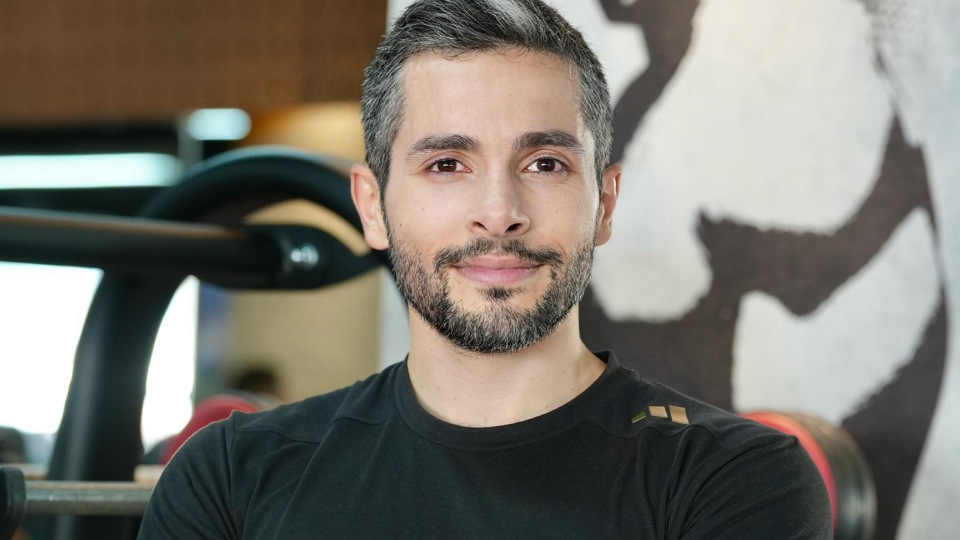
Omar is based in Jordan, where he works as a User Experience Designer and teaches BODYCOMBAT™, BODYPUMP™, BODYATTACK™, LES MILLS GRIT™, and LES MILLS CORE™. He uses Ramadan as an opportunity to ‘charge his batteries’, concentrating solely on faith and what he believes in to strive to become a better person.
How do you use Ramadan to improve your physical health?
“It is the best month to start a healthy organized lifestyle. The food and training times are fixed within specific hours, so you can focus on trying to cut the bad habits during the day which will reflect clearly in physical health.”
How do you use Ramadan to improve your mental health?
“Ramadan is one of my favorite months to work-out as I can focus on mental strength more so than physical strength. Having to focus on my training and getting through it with the best results while not thinking of thirstiness is what improves your mental strength. And stronger mental strength reflects on physical strength over time.”
How do you tailor your training during Ramadan?
“Fasting during Ramadan shouldn’t prevent you from doing any workout, as long as you listen to your body and its capabilities. Don’t push too hard, but don’t take it too easy either.
Before Ramadan, I try to build my fitness, which helps me when I am fasting. Then, during Ramadan, I usually decrease the number of classes I teach. I also purposely use 80 percent of my power (so in BODYPUMP instead of using 10 kg plates I use slightly less). My favorite time to work-out is in the last hours before iftar, as I feel my muscles get the best benefit."
How do you maintain energy?
“For suhoor, I love a cheese omelette and my favorite food in iftar is soup and fattoush (Arabic salad). I also make sure my iftar meal contains my favorite veggies and a small plate of protein and carbs. Trying not to consume a lot of coffee and sweets after iftar will help maintain your health and fitness, while aiding your sleep at night.”
Bonus tip:
"Listen to your body and remember the rule of thirds. One-third of the time you will feel good in your training, one-third you will feel okay, and the last third you may feel crappy and not in the mood to do anything. That is normal – what matters most is that you keep chasing your goal.”
Reem Elwazeer
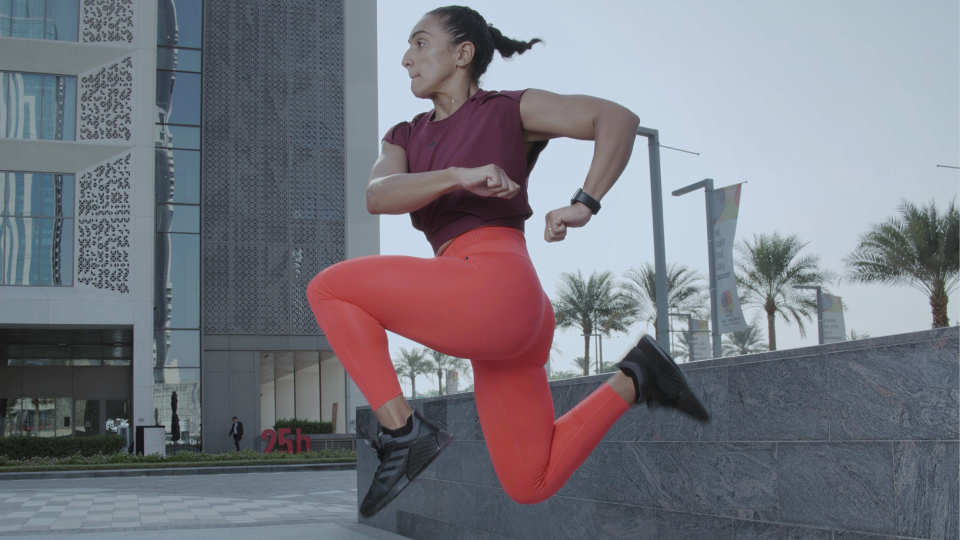
Reem lives in the UAE, teaching BODYPUMP™, LES MILLS SPRINT™ and LES MILLS GRIT™ while also focusing on mobility training and strength conditioning. For Reem, Ramadan is a time to focus on low-impact movement, mobility, stretching and recovery.
How do you use Ramadan to improve your health?
“This special time of year when we gather as a family helps us become connected more to ourselves spiritually and mentally. It’s the time when we detach from the chaos that happens from day to day and focus more on our inner peace and state of mind.”
How do you tailor your training during Ramadan?
“Ramadan is not the time to work for those GAINS, it’s when you sustain what you have and work more on enhancing it through mobility and stretching. I try to reduce the number of classes that I teach and focus more on low-impact strength workouts, with a little bit of cardio, plus more mobility and stretching.
When I’m teaching during fasting, I tell members that taking options is okay. We are not here to kill ourselves, we are here to maintain a healthy lifestyle. Remember, any type of movement will benefit you. If I feel tired, I try to focus more on mobility and stretching, or sometimes I just take the day off.”
How do you maintain energy?
“Maintaining healthy eating during Ramadan can be very challenging! People are fasting during the day and when the time of iftar comes they tend to eat all kinds of food and sweets. In suhoor, I eat a high-protein meal with whole grains because they get stored in our body and help sustain energy during the day. I try to eat three dates as they give me so much energy. In iftar, I try to avoid the sugary juices and I just break my fast with water and one or two dates and then I go to pray before I eat. During the night, I try to stay hydrated and I also take electrolytes to keep me hydrated during fasting.”
Bonus tip:
"Ramadan is not the time to kill yourself in the workouts, but it’s also not the time to stop. Take it easy. If you’re tired, just rest or do stretching. Remember, rest and recovery are important too! "
Ahmed Nagy
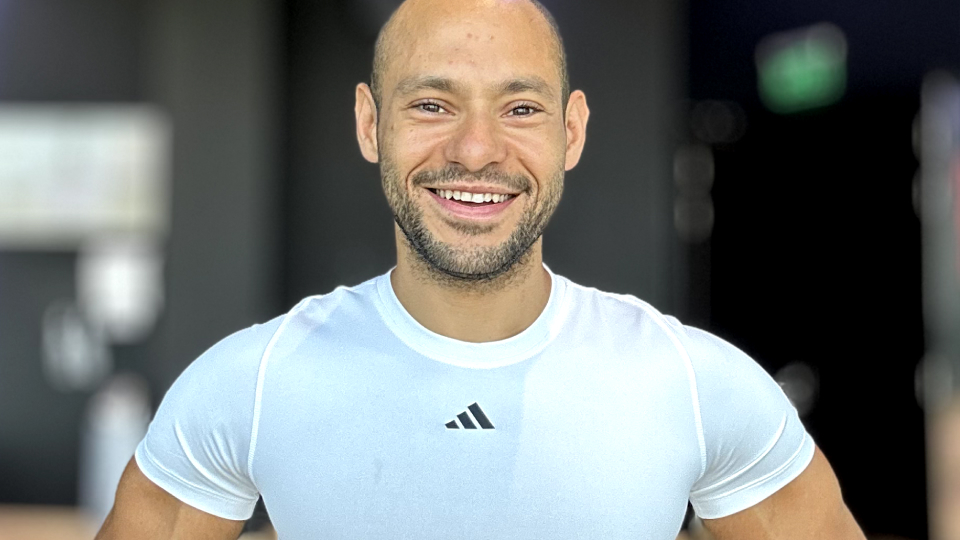
Bahrain-based trainer Ahmed Nagy teaches BODYATTACK™, BODYPUMP™, LES MILLS GRIT™ and LES MILLS CORE™. He believes Ramadan can allow you to improve fitness and reduce body fat to a level you never dreamed of.
How does Ramadan help improve your health?
“I typically always reach my optimal weight and fitness during Ramadan. Fasting for almost 15 hours is an outstanding way to give our gut and digestive system a break. It’s also good for our mental health. Fasting for 15 hours without water or food helps us strengthen our mindset so we can do anything.”
How do you tailor training during Ramadan?
It depends on your goals, but I prefer low-impact moderate-intensity training before iftar and high-intensity training after iftar. Before iftar, your blood sugar is low so moderate intensity like BODYPUMP, LES MILLS CORE or cycling is great. After iftar, reducing your intensity is not as important.
How do you maintain energy?
Where possible I utilize afternoon naps to refresh my energy. At iftar I always go for a light protein shake with fruits before my workout, then a few hours later I have my main meal which is protein, carbs, vegetables and fat. If I feel sluggish during my workout I ingest an energy drink in between, then straight after I have a solid meal. For suhoor, I go for oats, yogurts and fruits.
Bonus tip:
“Stay hydrated. I break my fast with a big 500ml cup of water, then during the night I make sure I drink as much as 3 liters.”
Alanoud Zeaiter
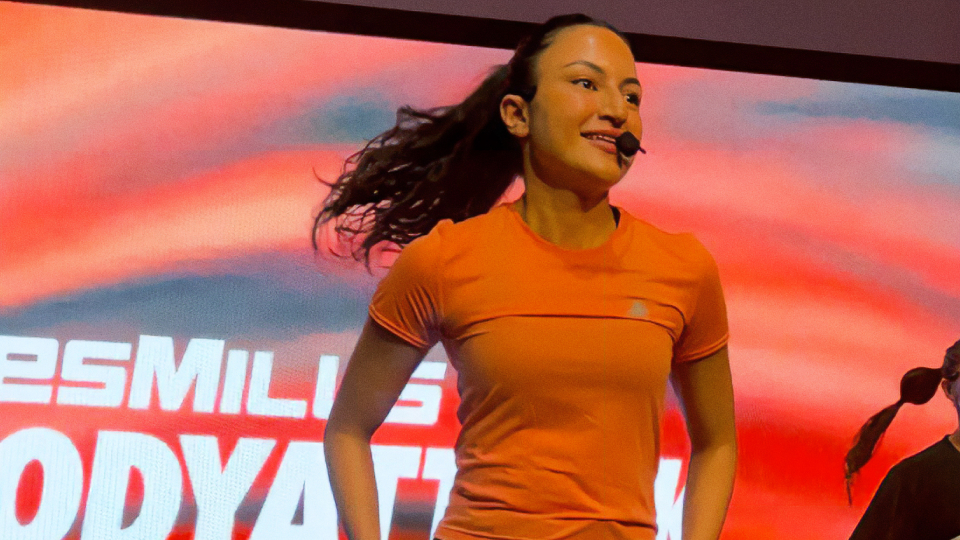
Based in Jeddah, Saudi Arabia, Alanoud enjoys explosive conditioning, power, strength and functional training. She teaches LES MILLS GRIT™, BODYATTACK™, BODYPUMP™, RPM™ and BODYBALANCE™. For Alanoud, Ramadan is a very spiritual month that helps her feel grounded and peaceful.
How does Ramadan help your health?
“Ramadan teaches me a lot of patience and it’s always a good chance for me to re-focus and set my priorities right. It helps my physical and gut health a lot and I tend to focus more on eating what truly benefits my body.”
How do you tailor training during Ramadan?
“There’s no optimal way to train as we’re all different. Sometimes I find myself training at 5pm, other times I find myself training at 2am! If I'm feeling energetic, a light to moderate cardio workout before iftar can set the mood right. And after iftar, I like to go for more strength and functionality, sometimes finishing with a good GRIT workout – it’s short and intense and I feel great after.
Remember, you’re fasting for long hours, so if your body is telling you to slow down with your training, listen to it. Be patient and give your body time to adapt. Prioritize sleep and stay hydrated.“
How do you maintain energy?
“Waking up early or working out after iftar can be exhausting, so it’s important to take it easy and be patient as your body gets used to the new system. Fuel your body well and avoid too much time in the sun while fasting. When it comes to fuel, I keep Iftar light. Warm potato or lentil soup with salad and sambusa (a stuffed triangular pastry). And for suhoor, I ensure I eat a good portion of proteins and carbs that suits my fitness goals, and to top it off, I add some fruit for dessert. If you love coffee like I do, try to reduce your intake 2-3 weeks before Ramadan so you get used to low caffeine levels in your body.”
Bonus tip:
“Snacks! After Iftar, make sure you have good snacks and water with you all the time!”
RAMADAN REMINDERS
- Share your healthy intentions with like-minded friends and family (Ramadan is often a time when people indulge in unhealthy habits)
- Prepare for Ramadan by reducing coffee and carbs in the morning, this will decrease the headaches and low morning energy, especially for the first week of Ramadan
- Find a group class, as group training is more fun
- Set reminders and reward yourself at the end of each week
- Avoid high-intensity training
- Try and work out as close as possible to iftar (the evening meal)
- Resist the temptation to go crazy with food, drinks and sweets after sunset
- Remember your brain needs 20 minutes to receive the "you are full" message from the stomach, so portioned, divided food and slow eating on (iftar) is key to avoiding overeating
- Sleep well. This will help your mental focus to overcome thirst and hunger. (You can get some top sleep tips here.)



